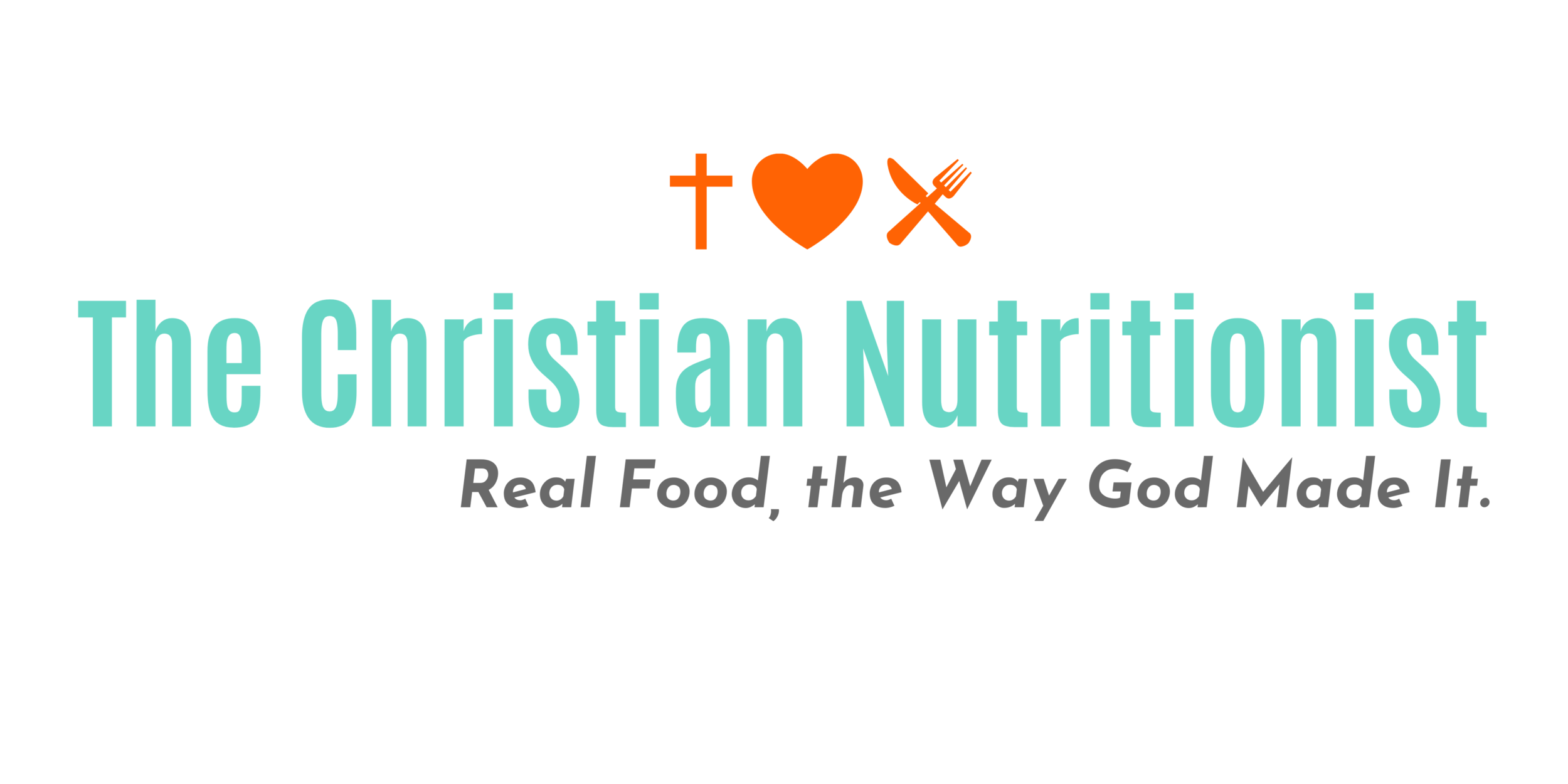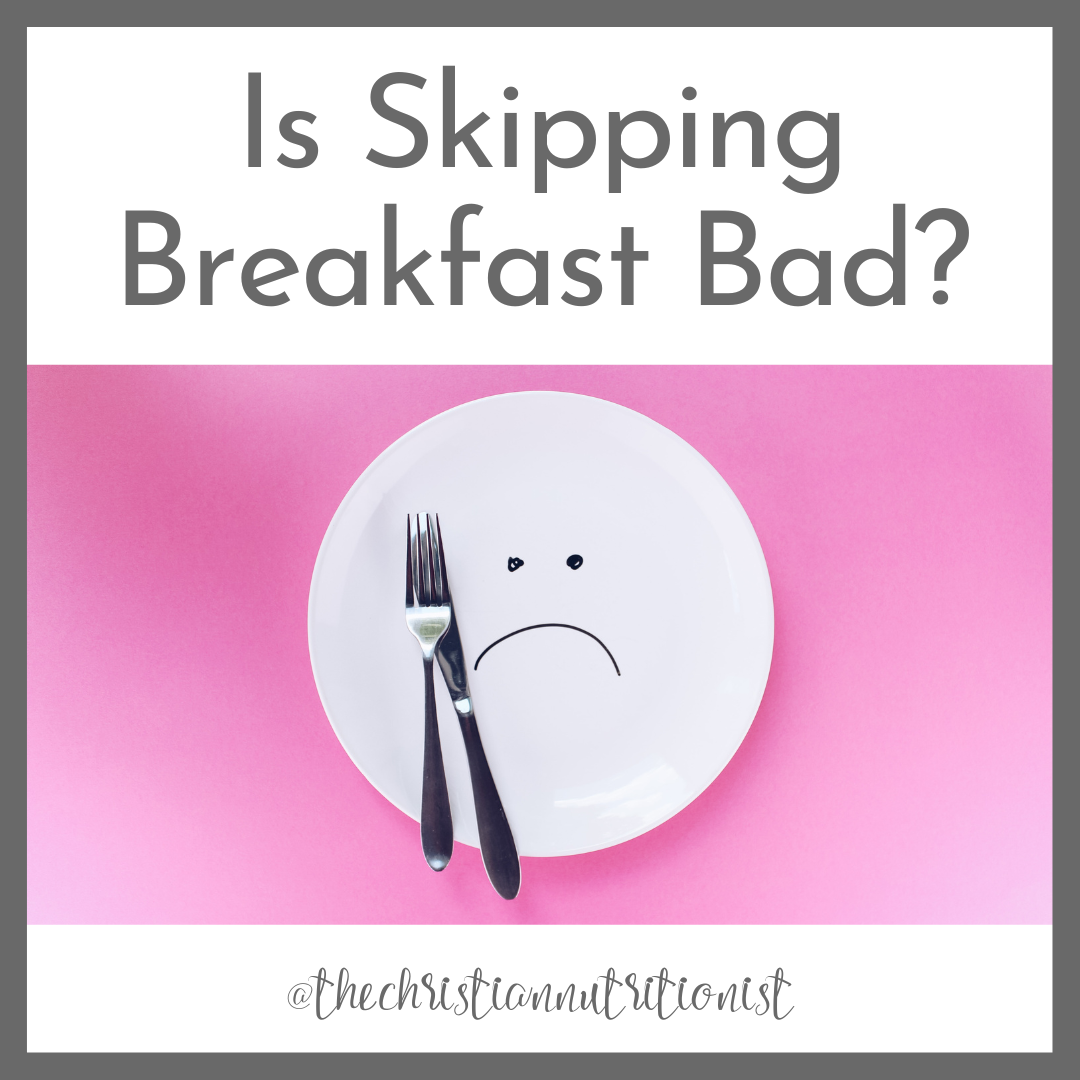Is Skipping Breakfast Bad?
This is one of the most common questions I get when I recommend intermittent fasting. We’ve all heard that breakfast is THE most important meal of the day, right? It’s been drilled into our heads for years. The reasons why, however, may or may not apply to you. Let’s dig in.
First of all we have to tackle the assumption that Intermittent Fasting means you skip breakfast. But here’s the thing: NO ONE skips breakfast.
The word breakfast comes from the two words: break fast. When you sleep, you fast, which means you don’t eat. That’s the beauty of intermittent fasting - you’re already doing it!
Whatever your first meal of the day is, regardless of the time, is actually your breakfast.
The more accurate question to ask is: Is it bad to delay breakfast?
We’ve heard that it’s important to eat breakfast within an hour of waking in order to “fire up the metabolism.” We’ve also heard that people who eat breakfast are more successful in losing and maintaining weight. And we’ve all been warned that our energy will tank if we don’t eat something first thing in the morning.
But guess what: your metabolism is already ON FIRE first thing in the morning.
It’s burning stored energy - the food already stored on your body which we call fat.
However, when you get up and eat right away, your body stops burning stored fuel and starts burning the new fuel you’re putting in - your breakfast. Delaying your first meal gives your body more time to burn fat.
Now, the caveat here is that you must be metabolically flexible in order for your body to efficiently burn this fat energy. But, sadly, there are a whole lot of people who aren’t metabolically flexible.
People who eat a Standard American Diet (SAD) full of processed foods, fast foods and excess carbs are sugar-burners. Their bodies can’t efficiently switch over into fat-burning mode once they’ve burned most of their stored sugar. The body always uses sugar energy first and THEN the fat energy. But if you can’t switch over, that’s a major problem. An energy problem. Your body needs energy and if it can’t get it from your fat, it needs to get it from food.
This is where a lot of the “breakfast is the most important meal of the day” recommendation comes from. Well-meaning health professionals are often targeting the SAD crowd and trying to get ahead of the energy crisis. Eating a good breakfast first thing in the morning WILL help stabilize their blood sugar and, therefore, their energy level, plus help prevent the “hangry” state where they are more likely to make worse choices. But will it make them metabolically flexible? Not necessarily…
In order to be metabolically flexible, you must train your body to burn the sugar AND the fat. How do you do that?
1. Regulate your carb intake.
Keep carbs low most of the time (below 100g) and get most of your carbs from Real Food sources like veggies and fruits. That doesn’t mean no carb, that doesn’t mean you can’t ever have a cookie, it means you need to eat more Real Food than SAD food.
2. Intermittent Fast
What intermittent fasting does is allow your body a nice chunk of time to burn through the stored sugar and then switch over to fat as fuel. Like I said, you are ALREADY fasting, that’s the beauty of this. All you need to do is be more intentional about the length. In Feast 2 Fast® we fast between 12-16 hours. If 12 seems too daunting, start with 10 or even 8 and slowly increase as your body becomes better at being more metabolically flexible. The reason people can’t fast is because they are NOT metabolically flexible, so it takes some time. This is part of the training. Give yourself some grace while you’re doing it!
By regulating your carb intake and practicing intermittent fasting, you will decrease insulin, the “storage” hormone. The more you eat carbs, the more you release insulin. The more you release insulin, the more you are in “storage mode.” The more you are in storage mode, the more you are NOT in fat-burning mode. Insulin blocks fat burning.
So, to answer the question, is it bad to “delay” breakfast? No. Not for most people. It may require you to train your body to be metabolically flexible, but this is totally doable. It’s our number one metabolic goal in Feast 2 Fast® - teaching the body to be metabolically flexible while still maintaining enjoyment of our food. You don’t have to resort to extremes like ketosis or swearing off brownies and wine forever. Real food CAN meet Real life.
Delaying breakfast allows the body more time to burn fat. God purposefully designed our bodies to BE metabolically flexible. We don’t JUST want to burn sugar and, while it’s awfully alluring to ONLY burn fat, metabolic flexibility is the key to sustainability in your health and in your life.
If you are interested in joining the next round of Feast 2 Fast®, my 4-week Metabolic Makeover, you can visit the website here!
And if you’d like an extra tip on how to choose a breakfast to extend your fat burning mode, read this post about my Fat-Burning Breakfast Strategy.





